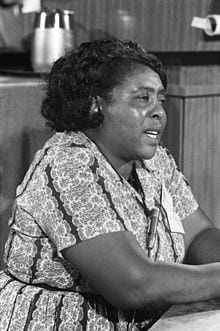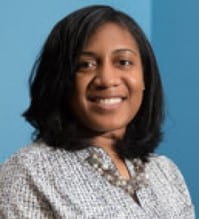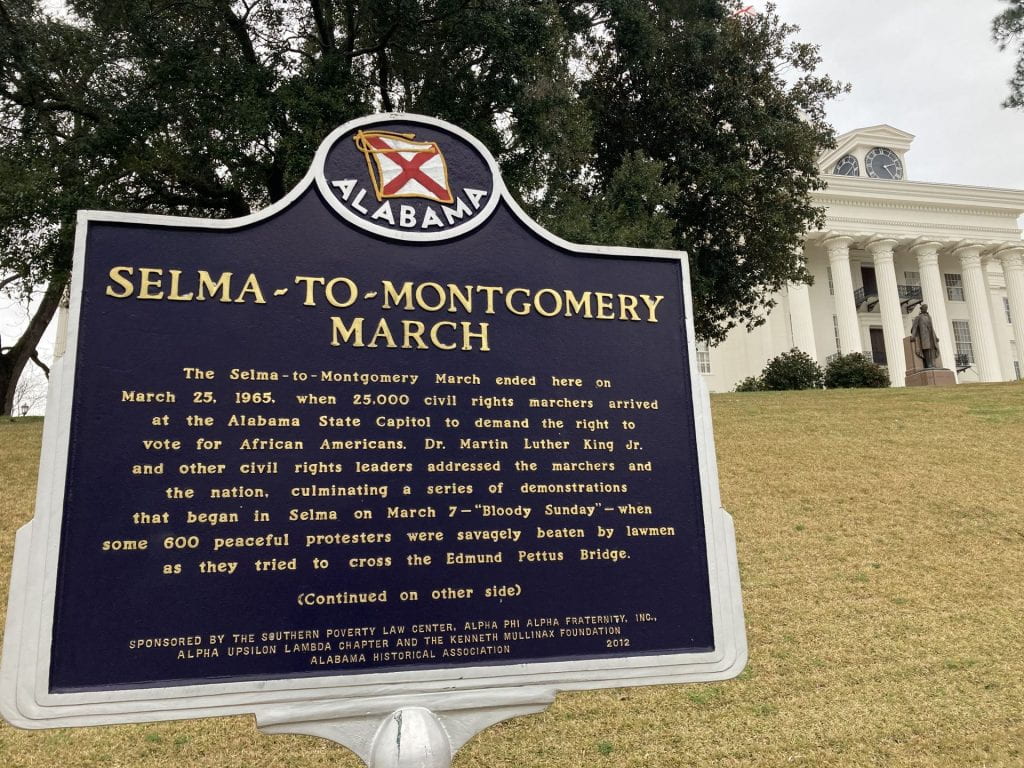This post is co-published by Skylar Wynn and Aminat Balogun.
Over the last year, the pandemic has provided a more in depth look at the inequalities faced by so many Americans in our country. Coinciding with the trauma and loss of the pandemic, was also the continued trauma and loss of Black lives to police brutality. After a summer of protests, this made achievements, such as Stacey Abrams’ work on ensuring voting rights, a strong reminder of our determination in creating a more equitable country. Yet in juxtaposition is the reality that with progress towards equity, there is constant pushback against it.
The brutal force and rhetoric used to squelch protests for Black Lives and the storming of the Capitol building (and the lack of response) serve as an all too recent reminder of this. This month, Georgia Republicans passed a law that imposes new voting restrictions such as new voter identification requirements for absentee ballots and limiting the use of ballot drop boxes. Absentee voting was fundamental in increasing access to the ballots for many Black voters in this last election. These legislative pushbacks are not unique to Georgia but are occurring in multiple states across the US. For Black Americans, democracy has never been without barriers.
This latest wave of pushback is part of a long oppressive history in securing voting rights, from prohibitive tools like poll taxes to racially disparaging laws meant to restrict access to exercising the right to vote, to violent assaults on activists and Black voters. All of which is just a piece of the larger work of systematic racism in this country.
But while these examples of systemic discrimination against the Black community are daunting, there is always room for hope. As we celebrate Women’s History Month and having celebrated Black History Month in February, it is important to remember that the movements for racial and gender inequality are deeply interconnected. They draw upon shared principles of activism, equality and most importantly, the strength and power of women advocates. Though their contributions are not always recognized, Black women have always stood at the forefront of social movements especially movements for Black voter’s rights.
In the early 20th century, Black Suffragists like Mary Church Terrel and Ida B Wells fought boldly to establish not just their own right to vote, but the rights of all citizens. In the 1960s, activists like Fannie Lou Hamer pushed for the passage of the Voting Rights Act and placed their own lives in danger to ensure that Black citizens in the South could exercise their right to vote. And today, the battle continues as women like Stacey Abrams continue to advocate for Black voter registration and push back against restrictive legislation.

Photo Credit: Library of Congress, Leffler, Warren K., photographer
The work of these powerful women teaches us one key lesson; that women are an invaluable part of the engine for social change. As long as women are able to use their voices to advocate for change, there is so much to be hopeful for. The continued fight for racial equality is a testament to the resilience and strength of the Black community and the strength of Black women. It is also a reminder that we each have a role to play in strengthening our democracy and ensuring that each American is afforded the opportunity to exercise their right to vote.

Skylar Wynn is a Senior Research Assistant at the Global Women’s Institute and pursuing a Master in Public Policy at the George Washington University. She received her bachelor’s degree with honors in Women’s Studies from Old Dominion University. As an undergraduate, Skylar interned with the Old Dominion University Women’s Center on campus focusing on empowerment, activism and creating a sexual assault free environment. She is passionate about addressing the unique needs of girls, girls’ empowerment and how public policy can work to addresses the factors which drive inequality affecting Black women and girls.

Aminat Balogun is a Graduate Research Assistant at the Global Women’s Institute and Master of Public Health Student at the George Washington University, specializing in Maternal & Child Health. In addition to her work with GWI, Aminat works as a maternal mental health advocate. Her ultimate career goal is to help reduce health disparities for Black women through the promotion of culturally competent, accessible, and patient-centered reproductive healthcare.



Be First to Comment